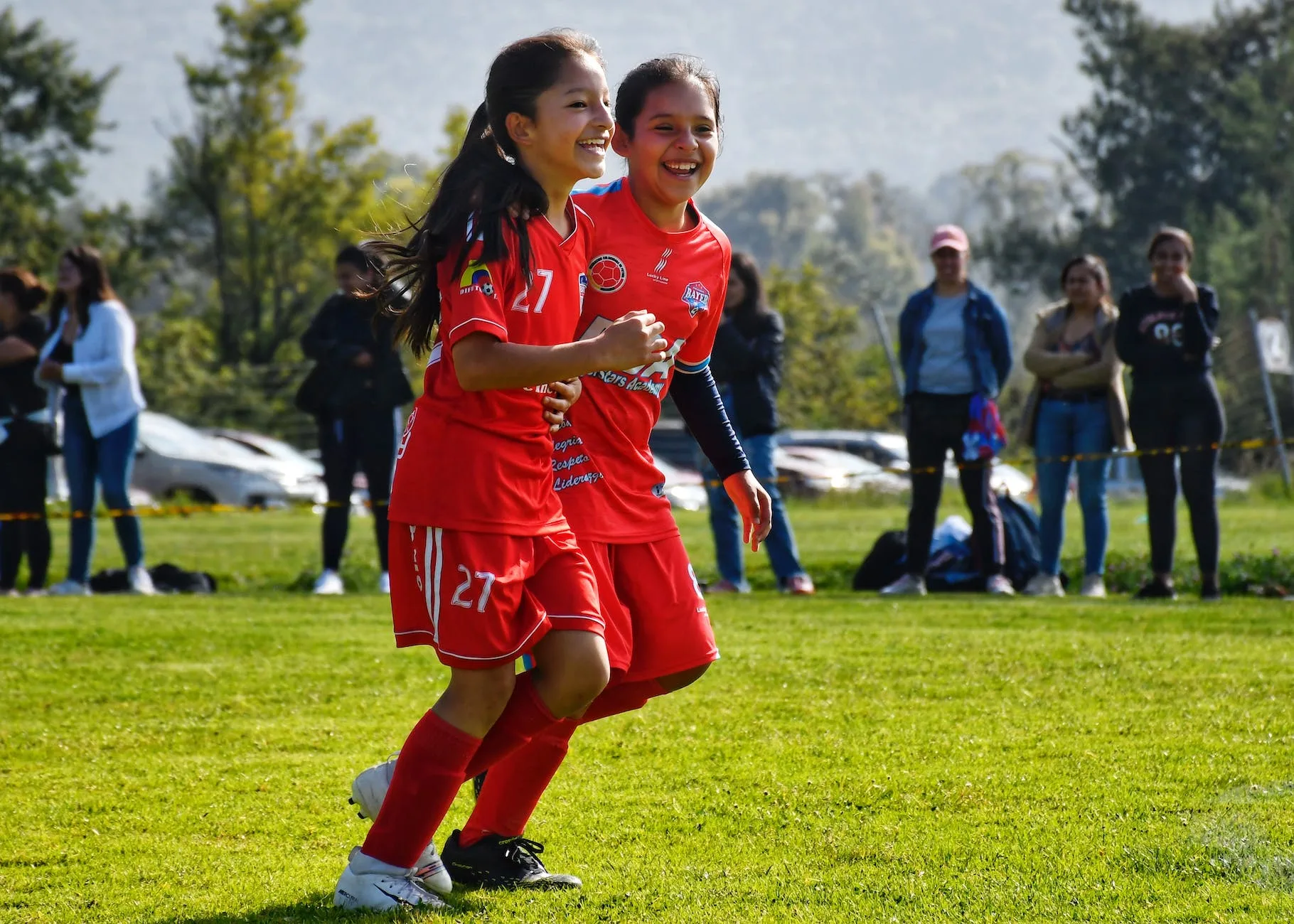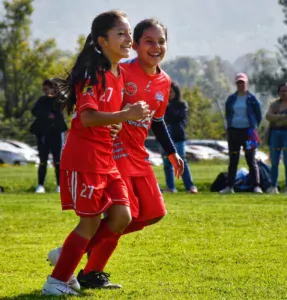Unlocking the Power of Confidence in Young Athletes
Are you a parent, coach, or young athlete looking to excel in the world of youth sports? Confidence plays a pivotal role in a child’s journey toward success, both on and off the field. In this comprehensive guide, we’ll explore the essential strategies to nurture and boost confidence in youth sports. From understanding the psychology behind confidence to practical tips for implementation, we’ve got you covered.
Understanding the Psychology of Confidence
Before diving into the strategies, let’s take a closer look at the psychology of confidence. Confidence is not an innate trait; it’s a skill that can be developed over time. For young athletes, building confidence is a journey of self-discovery and continuous improvement.
- The Self-Efficacy Factor: Self-efficacy, or the belief in one’s ability to achieve specific goals, is a fundamental component of confidence. It’s essential to help young athletes set achievable goals and celebrate their successes, no matter how small.
- Positive Self-Talk: Encouraging positive self-talk can significantly impact a child’s confidence. Teach them to replace negative thoughts with affirmations like, “I can do this,” or “I am getting better every day.”
- Failure as a Learning Opportunity: It’s crucial to reframe failure as a stepping stone to success. Emphasize that setbacks are a part of every athlete’s journey, including professionals. Share stories of famous athletes who faced failure and bounced back stronger.
The Role of Supportive Parents
Parents play a pivotal role in shaping their child’s confidence in sports. Here are some strategies to consider:
- Be a Cheerleader, Not a Critic: Offer unconditional support and encouragement. Avoid criticizing their performance during or after games. Instead, focus on their effort and dedication.
- Set Realistic Expectations: It’s essential to set achievable goals and expectations for your child. Unrealistic demands can lead to frustration and decreased confidence.
- Promote a Growth Mindset: Encourage your child to embrace challenges and view them as opportunities for growth. This mindset shift can significantly boost confidence.
- Foster Independence: Allow your child to take ownership of their sports journey. This includes decision-making about training, practice, and competitions.
Coaching for Confidence
Coaches have a profound impact on young athletes’ confidence. Here’s how they can nurture and develop it:
- Individualized Feedback: Provide personalized feedback to each athlete, highlighting their strengths and areas for improvement. Recognize their progress to boost confidence.
- Create a Supportive Team Environment: Foster camaraderie and teamwork among athletes. A supportive team environment can help young athletes feel more confident and motivated.
- Set Realistic Goals: Work with athletes to set achievable goals that align with their abilities and aspirations. Tracking progress towards these goals can be a powerful confidence builder.
- Mental Toughness Training: Incorporate mental toughness training into your coaching regimen. Teach athletes how to stay focused, resilient, and confident under pressure.
Developing Skills and Competence
Confidence is closely tied to competence. As young athletes develop their skills, their confidence naturally grows. Here are some skill-building strategies:
- Structured Training Programs: Implement well-structured training programs that progressively challenge athletes. Seeing improvement in their abilities boosts confidence.
- Skill Workshops and Clinics: Encourage young athletes to attend skill-specific workshops and clinics. Gaining expertise in their chosen sport can be a significant confidence booster.
- Visualization Techniques: Teach athletes to visualize success. This mental rehearsal can enhance their confidence when it’s time to perform.
- Strength and Conditioning: A physically strong and fit athlete is more likely to feel confident in their abilities. Incorporate strength and conditioning exercises into training routines.
Embracing Failure as a Stepping Stone
- Failure as Growth: It’s crucial to help young athletes understand that failure is not the end of the road but a stepping stone to success. Share stories of athletes who faced adversity and used it as motivation.
- Post-Game Analysis: After each competition, conduct a constructive post-game analysis. Focus on the positives and areas for improvement, rather than dwelling on mistakes.
- Resilience Building: Teach resilience as a valuable life skill. Resilient athletes bounce back from setbacks with even greater determination and confidence.
The Importance of Positive Role Models
- Inspiring Role Models: Introduce young athletes to role models who exemplify confidence, sportsmanship, and hard work. These figures can serve as powerful sources of inspiration.
- Mentorship Programs: Establish mentorship programs where experienced athletes can guide and support younger ones. This mentorship can significantly boost confidence and skill development.
Balancing Competition and Fun
- The Joy of Sports: Remember that sports should be enjoyable for young athletes. While competition is important, it should not overshadow the joy of playing the game.
- Avoid Overemphasis on Winning: Emphasize the value of effort, improvement, and sportsmanship over winning at all costs. This approach fosters a healthier and more confident mindset.
- Celebrate Small Wins: Don’t wait for major victories to celebrate. Acknowledge and celebrate small wins, whether it’s a successful practice session or a well-executed play.
The Impact of Supportive Peers
- Peer Encouragement: Encourage young athletes to support and uplift their peers. A positive and supportive peer group can significantly boost confidence.
- Team Building Activities: Organize team-building activities outside of regular practice. These activities help build camaraderie and enhance the sense of belonging.
- Peer Mentoring: Implement peer mentoring programs where older athletes guide and mentor younger ones. This creates a supportive and confidence-boosting dynamic.
Dealing with Performance Anxiety
- Breathing Techniques: Teach young athletes simple breathing techniques to manage performance anxiety. Deep, controlled breaths can calm nerves and enhance confidence.
- Visualization and Relaxation: Incorporate visualization and relaxation exercises into pre-game routines. These practices can help athletes feel more confident and focused.
- Positive Affirmations: Encourage athletes to use positive affirmations to counteract negative thoughts and anxiety. These affirmations can boost confidence and reduce nervousness.
Setting Realistic Expectations
- Long-Term Development: Help young athletes understand that confidence is a journey that takes time. Setting realistic expectations for progress is essential.
- Success Beyond Sports: Emphasize that success in sports is not the only measure of a person’s worth. Encourage them to explore their interests and talents outside of athletics.
- Balancing Academics and Sports: Teach the importance of balance between academics and sports. A well-rounded education can provide a sense of security and confidence.
Supportive Resources for Parents, Coaches, and Athletes
- Parenting Books and Workshops: Parents can benefit from books and workshops focused on nurturing confidence in youth sports.
- Coaching Certification Programs: Coaches can pursue coaching certification programs that include modules on boosting confidence in young athletes.
- Youth Sports Psychology: Athletes, parents, and coaches can consult sports psychologists for expert guidance on confidence-building strategies.
Case Studies: Success Stories
Let’s delve into some real-life success stories where confidence played a crucial role in young athletes’ journeys:
Michael Phelps: From Fear to Olympic Glory
Michael Phelps, the most decorated Olympian of all time, faced a significant hurdle in his early swimming career—water phobia. With the help of a supportive coach, he overcame his fear and built unwavering confidence, leading to an unparalleled Olympic career.
Serena Williams: Champion Mindset
Serena Williams, one of the greatest tennis players in history, has repeatedly spoken about her mental toughness and confidence on the court. Her unwavering self-belief has been a driving force behind her numerous Grand Slam victories.
LeBron James: Rising from Humble Beginnings
LeBron James, a basketball icon, came from challenging circumstances. His confidence in his abilities, fostered by his mother and mentors, propelled him to NBA stardom and beyond.
Conclusion
Nurturing confidence in youth sports is a multi-faceted endeavor that involves parents, coaches, peers, and athletes themselves. By understanding the psychology of confidence and implementing the strategies discussed in this guide, young athletes can develop the self-assurance they need to excel in their chosen sports and beyond.
Additional Resources
- Youth Sports Confidence Building Workshop
- Positive Coaching Alliance
- American Psychological Association – Sports Psychology
- Sports Illustrated – The Power of Confidence in Sports
Disclaimer: This article is for informational purposes only and should not replace professional advice. Consult with sports psychologists, coaches, and experts for tailored guidance.

